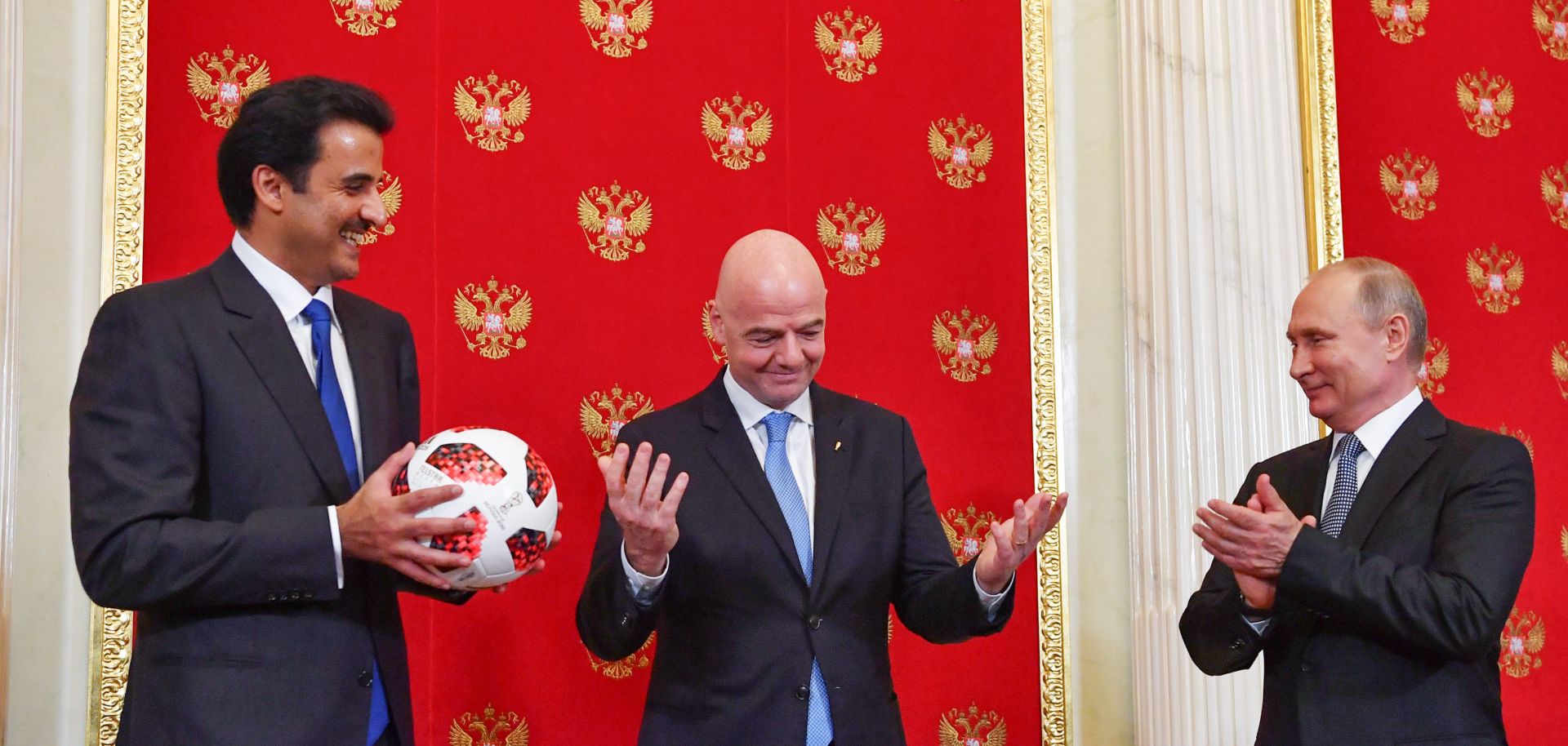GLOBAL PERSPECTIVES
The World Cup: Looking Ahead From 2018

Jul 23, 2018 | 10:00 GMT

Qatari Emir Sheikh Tamim bin Hamad al-Thani (L) smiles at FIFA President Gianni Infantino (C) and Russian President Vladimir Putin at the end of the 2018 World Cup in Russia. As part of the closing ceremony, Putin passed a soccer ball to al-Thani, whose country will hold the next tournament in 2022, in a symbolic gesture.
(YURI KADOBNOV/AFP/Getty Images)
Highlights
- Although questions of national identity dominated this year's World Cup in Russia, other geopolitical storylines are already starting to emerge around the next two tournaments in 2022 and 2026.
- Qatar will have a hard time living up to the success of Russia's tournament, in large part because the games it hosts will kick off in late November, rather than in the summer months.
- After the tournaments in Russia and in Qatar, the World Cup hosted jointly by the United States, Canada and Mexico will probably give FIFA a welcome breather from sociopolitical controversy.
Subscribe Now
SubscribeAlready have an account?
